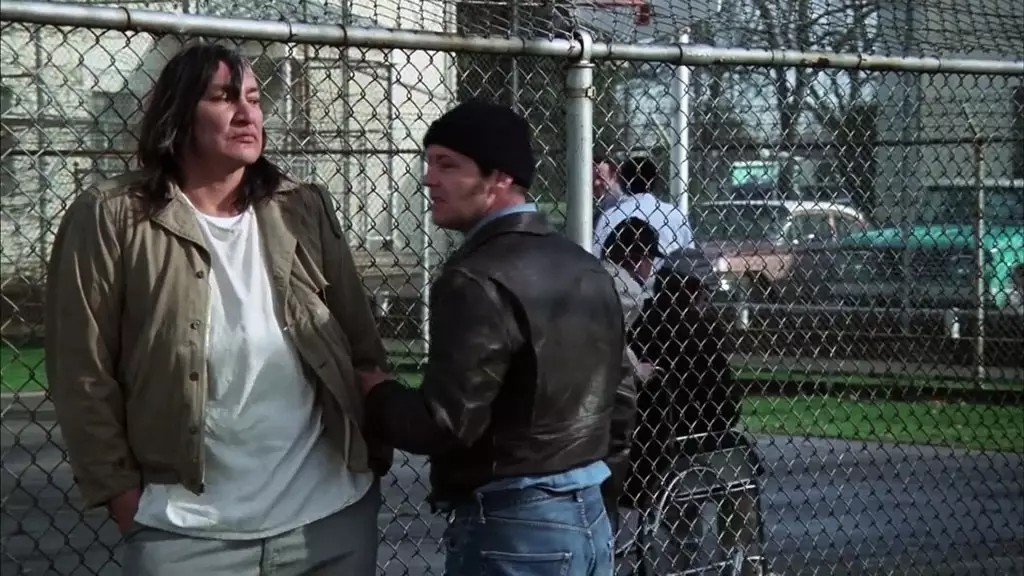The announcement of a new television adaptation of One Flew Over the Cuckoo’s Nest ignites both excitement and skepticism among cinephiles and critics alike. This beloved film, which cemented its place as a cinematic masterpiece in 1975, is renowned for its piercing exploration of authority, conformity, and rebellion. As the rights holders prepare to reintroduce this story to audiences through the small screen, it’s essential to recognize both the potential and inherent risks of such an endeavor. This isn’t merely about revisiting a classic—it’s about forging a new narrative path that respects its origins while engaging contemporary viewers.
The creative approach unveiled so far is intriguing: the upcoming series plans to start from Chief Bromden’s point of view, focusing on what happens after he escapes the psychiatric hospital. This conceptual shift promises fresh storytelling opportunities, allowing viewers to see the aftermath of McMurphy’s rebellion through the eyes of a character whose silence and perceived invisibility in the original story provided a powerful narrative device. By centering Chief’s perspective, producers aim to deepen the emotional resonance and explore themes of liberation, identity, and the lingering effects of systemic oppression.
Yet, this bold move raises questions about fidelity and intent. The original film was a stark indictment of institutional brutality, heavily grounded in Jack Nicholson’s charismatic portrayal of McMurphy. Reorienting the story around Chief Bromden might risk diluting the raw defiance that made the film so impactful, especially if the series shifts focus away from the rebellious energy that defined the original narrative. Will the new series honor the complex dynamics between authority figures and patients? Or will it drift into over-exploration of a character’s background, losing the visceral tension that made the film a cultural touchstone?
Challenges of Reinventing a Narrative Legend
Since the film’s release, there has been an ongoing debate over the appropriateness of remaking or expanding upon such a revered work. Producer Paul Zaentz’s cautious stance on remakes is understandable; the history of cinema cautionary tales is littered with reboots that failed to capture the essence of their source material. The TV series approach, however, offers a different canvas—more time for storytelling, character development, and nuance. It’s a chance to delve deeper into the stories left unexplored in the constrained runtime of a film.
Nevertheless, history has shown that expanding a film’s universe into a television format doesn’t guarantee success. Netflix’s Ratched, a prequel designed to explore the origins of the iconic character Nurse Ratched, was only a single-season experiment that failed to resonate broadly. Such missteps suggest that the challenge isn’t merely expanding the story but doing so with authenticity and wisdom. The question remains whether this upcoming series can strike that delicate balance, blending respect for the original with innovative storytelling.
The series’ future also hinges on the creative team involved. The spirit of the original story is steeped in anti-establishment fervor, a rebellious cry against tyranny, conformity, and dehumanization. Any deviation from these core themes risks alienating loyal fans while failing to attract new viewers who expect depth and relevance. The challenge is to preserve that rebellious spirit while making it accessible and engaging through serialized storytelling.
The Legacy and Future of a Cultural Classic
The timing of this announcement comes just as the legacy of One Flew Over the Cuckoo’s Nest is celebrating its 50th anniversary with re-releases and remembrances. Despite the nostalgia, there’s a palpable tension: do we need another interpretation of a story that’s already been etched into the cultural consciousness? Zaentz’s skepticism about remakes—particularly of classics like Psycho—suggests that true reverence involves respecting the original’s power rather than trying to replicate it.
Yet, Zaentz also sees the potential for television as a format that can dive deeper into characters and themes, something cinema, constrained by time, cannot often do. The hope is that this new adaptation will enrich the original narrative, offering new insights without betraying its core message. Given Zaentz’s recent acquisition of the film library, including other celebrated titles like The English Patient and Amadeus, it’s evident that he recognizes the enduring value of storytelling across mediums—and the importance of innovating carefully.
Though the journey from page to screen has always been fraught with pitfalls, the ambition to breathe new life into One Flew Over the Cuckoo’s Nest demonstrates a willingness to challenge conventions. Whether it will succeed in capturing the original’s incendiary spirit or end up as just another derivative retelling remains to be seen. What is undeniable, however, is that this project signifies a compelling experiment in storytelling, one that could redefine how we revisit and reinterpret cinematic classics for future generations.
